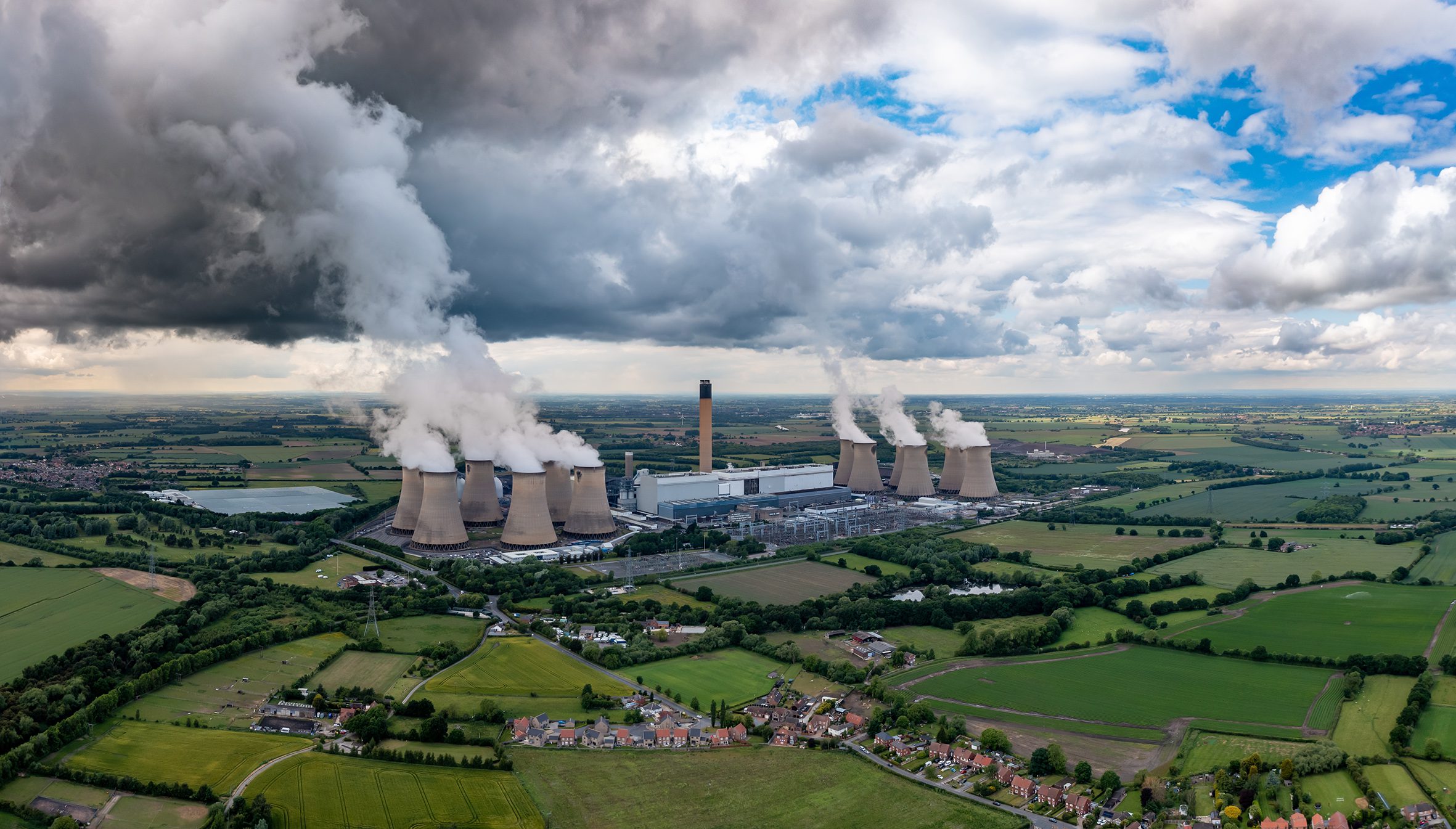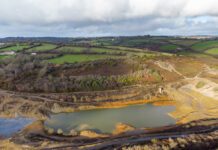
Over 650 scientists have signed a letter urging world leaders to stop using forests for bioenergy, ahead of the 15th Meeting of the Convention on Biological Diversity (CBD COP15) – a major UN summit on protecting nature.
The letter was written by prominent climate and biodiversity scientists from universities and organisations in top biomass sourcing countries – the U.S., Estonia, and Canada – and the UK–the world’s top importer of wood pellets for biomass energy.
The scientists warn that burning wood from forests for energy harms biodiversity and worsens climate change, thereby undermining countries’ ability to meet nature commitments, including those under the Convention on Biological Diversity.
This month, governments will meet in Montreal, Canada, at CBD COP15 to discuss a new global deal to protect at least 30% of land, inland waters, and oceans by 2030.
However, over 650 scientists warned in a sign-on letter to world leaders, burning trees for energy–referred to as biomass electricity–threatens to undermine these efforts to avoid global species collapse. The signatory scientists urge countries to stop relying on biomass given that it destroys forests, endangers wildlife, and accelerates climate change.
Scientists and environmental groups have warned for years that bioenergy, which incinerates some of the world’s most carbon-rich forests, worsens climate change. In fact, according to the European Academies Scientific Advisory Council, many forms of forest bioenergy increase emissions for years or decades and, as scientists have warned, create a carbon debt that lasts for centuries.
Now they are finding that bioenergy also has dire risks for nature and wildlife, pushing the world closer to the bring of mass species collapse. Indeed, bioenergy is causing the clearcutting of some of our planet’s most important forests, including never-been-touched forests in Canada, protected nature reserves in Estonia, and an internationally-designated biodiversity hotspot in the United States.
Forests are home to more than 80% of terrestrial biodiversity, supporting plants, animals, fungi, and other species found nowhere else on Earth. They also sequester one-third of the earth’s anthropogenic emissions. As these forests disappear to feed demand for biomass, so, too, will their unique ecosystems.
Unfortunately, these impacts are only expected to worsen as an increasing number of countries put this fake renewable at the heart of plans to reduce emissions. According to the International Energy Agency, by 2030 bioenergy will make up around one third of global “low-carbon” energy sources, leading even more trees to be burned.
Professor William Moomaw, Tufts University, a lead author of the letter, said: “Our forests are the most biodiverse places on the planet, providing habitat for countless species. They are also absorbing nearly 30% of all global emissions from burning fossil fuels – far more than any proposed technology – and if managed differently, could store twice their current amounts. The latest IPCC report finds ‘Safeguarding biodiversity and ecosystems is fundamental to climate resilient development, in light of the threats climate change poses to them and their roles in adaptation and mitigation,’ and calls for conserving approximately 30-50% of Earth’s land, freshwater and ocean areas, including currently near-natural ecosystems.
“Clearcutting for forest bioenergy is degrading the southeast U.S. coastal forests, a global biodiversity hotspot, the Baltic states in Europe, boreal forests in Canada, and illegally cutting protected forest ecosystems in the Carpathians of Eastern Europe. These are all home to irreplaceable rare plant species, mammals, and migratory and residential birds.
“We must stop cutting down forests and burning the wood to support a rapidly growing bioenergy industry. The counter-productive taxpayer-funded subsidies for this destructive and climate threatening industry must end!”
Professor Alexandre Antonelli, Director of Science at Kew Gardens, and a lead author of the letter, said: “We must transition our energy system, but it cannot be at the cost of nature. Ensuring energy security is a major societal challenge, but the answer is not to burn our precious forests – calling this ‘green energy’ is misleading and risks accelerating the global biodiversity crisis.”
Professor Jay Malcolm, University of Toronto, a lead author of the letter, said: “One of the biggest impacts of forest management is the erosion of dead wood habitat, placing hundreds of species at risk. Use of biomass as fuel from forests not only leads to net carbon emissions for decades or longer, but also removes these important dead wood habitats. This destructive practice needs to be abandoned immediately”
Professor Ülo Niinemets, University of Tartu, said: “In my country of Estonia we have seen only too clearly how the bioenergy industry and its demand for wood pellets can harm nature. Logging has been allowed in some of Europe’s most important forests. These areas are supposed to be legally protected. The Government has had to step in, but their moratorium only covers a small part of protected forests. Birds and plants, and forests’ important carbon stores, are being damaged by this industry. In Canada the UN nature meeting could declare forest ecosystems no-go areas for extractive industries, including bioenergy.”
Elly Pepper, Senior Advocate at the Natural Resources Defense Council (NRDC) and the Cut Carbon Not Forests Coalition (CCNF), said: “Governments and the bioenergy industry each have one hand on an axe that is decimating the world’s forests. Continuing to put a fake renewable like biomass energy at the heart of their net zero plans, will undermine any global deal promising to save nature by 2030. The world’s wildlife is already vanishing, and the bioenergy industry is helping to accelerate that by destroying precious forest habitats. A growing global bioenergy industry will require either large amounts of wood from forests, or huge amounts of specially grown energy crops, which could use hundreds of millions of hectares of land.
“Bioenergy doesn’t just have a big environmental price tag – it’s an incredibly expensive technology that gets billions in government subsidies every year. But, while wind and solar are getting ever cheaper, bioenergy costs may rise as forests are destroyed and the supply of wood disappears. We could see what has happened to gas prices happening to bioenergy prices as well. The sun and wind can’t be used up, but forests can if we keep burning them.
“The best way to protect forests and restore nature, and to help families in many countries who are struggling to pay energy bills, is to stop subsidising bioenergy and to insulate homes instead, making them more efficient and cutting bills.”
Ahead of the global ecological summit, UK politicians added their names to the roster of concerned voices, and some of their comments are included below.
Selaine Saxby MP (Con): “In the UK, we subsidise the use of biomass to generate energy by £1 billion. However… scientists and industry have raised serious concerns about the actual benefit of burning wood for energy. The UK’s carbon emissions have not dropped at the same rate as our reduction of coal would indicate. The reality is that more carbon is being put into our atmosphere currently than when we were burning coal.
“Drax is the UK’s biggest single-point source of carbon dioxide emissions. The power station must run predominantly on wood pellets – Drax sources most of its wood pellets from North America. The wood pellets are shipped to the United Kingdom on enormous vessels that are in transit for 21 days. Drax receives 17 wood pellet deliveries a day, and the plant operates 24 hours a day, six days a week. The energy required to transport the pellets adds to their lifecycle emissions and uses up the very fossil fuels the pellets are supposed to replace.
“I want to raise concerns about the industry’s efforts to store more carbon in an attempt to deliver negative emissions and remove carbon from the atmosphere… bioenergy with carbon capture and storage—BECCS. It is important to note that it is based on the flawed accounting that calls burning biomass carbon neutral. The process would also be incredibly expensive—power stations are seeking new subsidies to develop BECCS, and it is projected that it would require £31.7 billion over 25 years, which is equivalent to £500 per person in the United Kingdom.”
Pauline Latham MP (Con): “We should not support and encourage biomass over other renewable energy sources…its renewable credentials are really very weak. Burning wood pellets actually releases 18% more CO2 than burning coal, according to the Intergovernmental Panel on Climate Change; we only consider it a renewable source because new, replacement trees can absorb that carbon dioxide. However, as has been said, it would take nearly 190 years for the CO2 released by burning trees to be absorbed. At the end of this month, we will have only 27 years left to meet the Government’s target of net zero by 2050, so creating CO2 emissions that will not be absorbed for two centuries should not count as progress towards net zero.”
Sally-Ann Hart MP (Con): “Drax, a UK-based company that apparently engages in renewable power generation, bought licences to cut down two areas of environmentally important forest in western Canada for wood pellets. That is a tragedy. They are not regarded as a sustainable source for energy, and any replanted trees will almost certainly never capture as much carbon as the previous forest. Cutting down British Columbian rainforests is just as bad as what is happening in the Amazon.
“The UK is Europe’s top subsidiser of biomass energy, giving over £1 billion a year to large biomass-burning power stations. Drax receives more biomass electricity subsidies from the UK than from any other country…should the UK Government really be subsidising that?”
Wera Hobhouse MP (Lib Dem): “There is still time to reduce the worst effects of climate change. That urgency is why I cannot support the use of bioenergy. Like fracking, bioenergy production can also be harmful to local communities. The company that runs Drax power station recently paid up to $3.2 million to settle air pollution claims against the wood pellet factories in the US. Residents in Gloster have spoken of their health declining since Drax began operations in the town in 2014. The health issues include breathing difficulties, dizzy spells, rashes, nosebleeds, occasional burning sensations and irritated eyes when standing outdoors.
“Despite the clear issues presented, the Government continue to massively subsidise industrial-scale bioenergy. Prioritising true renewable projects over bioenergy solutions is a no-brainer… I hope they will start to think straight and not force the people they are meant to serve to pick up the dire consequences of their policies.”
Barry Gardiner MP (Lab): “I think the Government are at the point where they will listen; if they do not, it will make a mockery of all that we are doing on not only climate change but biodiversity.
“I say that in the week that COP15—the Convention on Biological Diversity—is due to meet in Montreal. That is significant because the Drax power station is consuming whole trees from primary forests in British Columbia, in Canada. We need to transition away from biomass; it is certainly not right for the Government to provide the £31 billion of additional subsidies entailed by what is now proposed over the lifetime of the project. I am sorry the Government are now considering a further proposal from Drax. We have to transition away from burning trees. It is a damaging way of using forests, and it cannot be sustained.”







